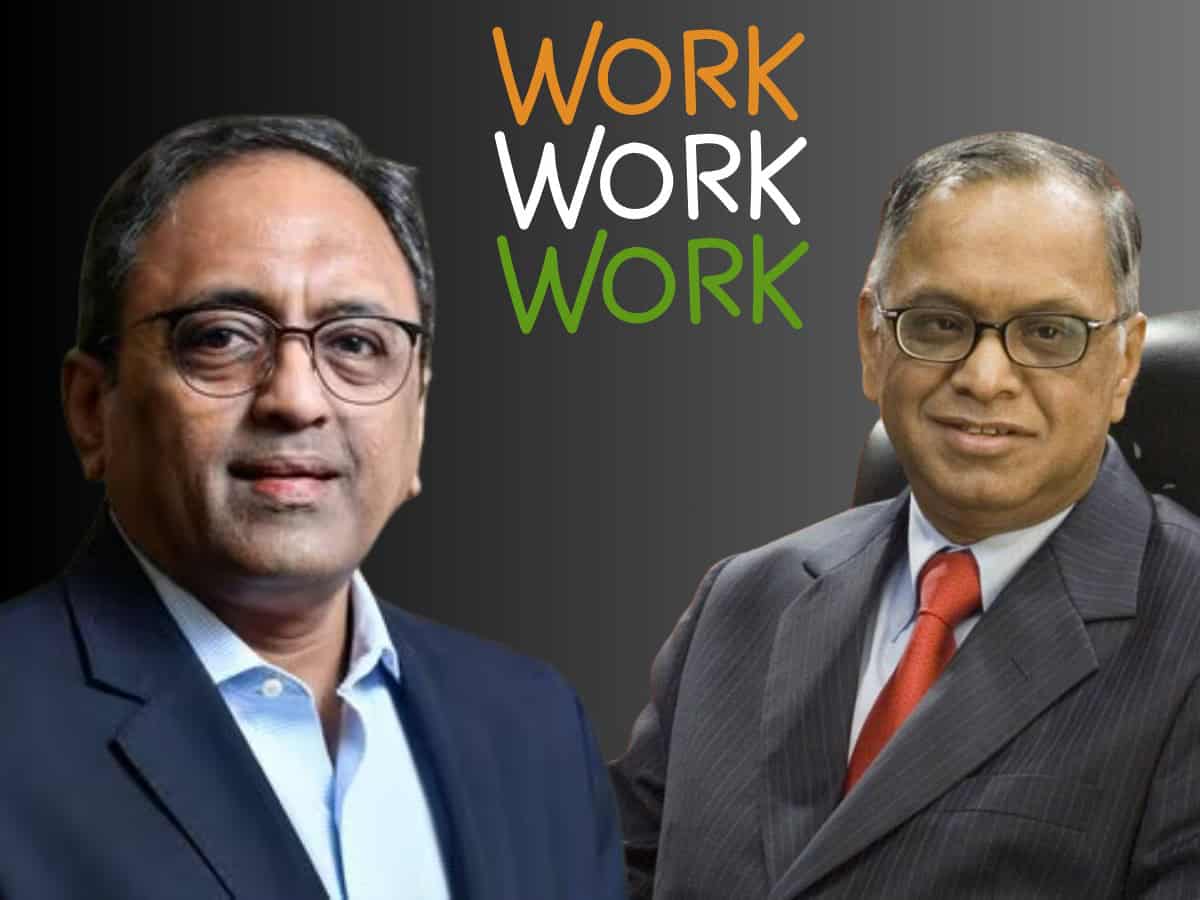
First, it was the IT czar, Infosys’ Narayana Murthy who wanted employees to work for 70 hours a week so the Indian economy could be taken higher.
Second, S N Subrahmanyan, L&T’s chairman, advocated a 90-hour work week, with no day off even on Sundays.
Third, Bhavish Aggarwal of Ola thought that there was no harm, only gain if younger employees put in 18-hour workdays for a few years.
These, to my mind, are not just isolated or a few one-off instances of people wanting more done and speaking out, but are very much a pattern that indicates a mindset of the capitalist kind. This is not healthy at last because employers have begun to think that their employees are some robotic thing and not human.
It is being forgotten that a human has a million other things in the world to do besides earning his livelihood. That is called a work-life balance, but Aggarwal has been quoted saying that it was only a Western construct.
What if it was indeed a Western construct? Most things that have come our way are also from the West as some are indigenous to us in India.
Modifications to this “Western” are understandable but standing the entire idea upside down is a tragic instance of an inhumane construct.
There have been many jokes that are now afloat that are more like brazen taunts after the L&T chief’s views came forth to public attention. One is particularly a nasty suggestion. Infosys and L&T should merge, and employ married couples in their respective entities, and instead of staring at their spouses, they can meet at retirement.
This ‘joke’ is not as nasty as the suggestion that workers slave away.
Contrast this with some “Western” companies. Say, Google. They have everything to take their employees to take their minds off work – table tennis, gyms, food courts, et al – for a short time so they can return to work refreshed. The focus is on productivity. Not enslavement.
Fortunately, or so I would like to believe, this idea of all-work-on-all-days is only at the formulation stage. Or they are sending out balloons before the industry starts lobbying with the government which can be easily convinced that hard work is for the good of the economy.
A different point of view has been hearteningly voiced. Industrialist Harsh Goenka said on X: “90 hours a week? Why not rename Sunday to “Sun-duty” and make ‘day off’ a mythical concept? Working hard and smart is what I believe in, but turning life into a perpetual office shift? That’s a recipe for burnout, not success. Work-life balance is not optional, it is essential.”
Government tends to look at numbers and humans are faceless numbers and if we need to reach a particular size of the economy measured in trillions of dollars, and even be convinced. Labour laws are on concurrent lists and states may implement the idea or modify them. But whose voice do you think the policy-makers tend to listen to?
As soon as Subrahmanyan’s views came to my attention, my mind immediately raced back to the famous Charlie Chaplin movie, Modern Times. The poor worker on an assembly line, just tightening the bolts on an item moving on a conveyor belt, goes bonkers with the monotony of his work. To improve productivity, the assembly belt is moved at a faster clip every now and then. That movie speaks of the sad saga which we may see repeated.
Imagine working for 90 hours a week. The employee has just 78 hours left for himself which includes the time he needs for himself, to sleep, to eat, to shop for stuff to eat, to tend to his family, to go see a movie. Or just goof off doing nothing but there’s no time left for it.
Just hark back to the work-from-home (WFH) methodology that emerged as a counter to the COVID-related disruption. Half the housing in India is of a room and a room and a half, as per the census statistics. A family includes a wife who cannot let the pressure cooker whistle because the spouse or son or daughter is on a video call.
The boss shouts at the employee. The spouse who thought the other was respected has the world caving in all around. The WFH had caused several disruptions in families unlike the boss who held the video calls at the drop of a hat from a workroom of his own in a better house. Because the employee was no longer commuting, the conveyance allowance was cut off. Since the time was not spent commuting to work, however, the employee had better spend it on work – a win-win for the employer, a lose-lose for the employer.
Time to decide if one can trust this emerging mindset.



